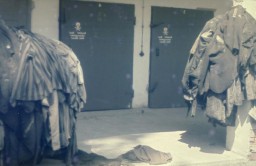You searched for: world war I
<< Previous | Displaying results 381-390 of 534 for "world war I" | Next >>
-
Wilek (William) Loew describes political prison in Budapest after the Germans arrested him as a Polish spy
Oral HistoryWilek was the son of Jewish parents living in the southeastern Polish town of Lvov. His family owned and operated a winery that had been in family hands since 1870. Wilek's father died of a heart attack in 1929. Wilek entered secondary school in 1939. Soon after he began school, World War II began with the German invasion of Poland. Lvov was in the part of eastern Poland annexed by the Soviet Union. Although the Soviets took over Wilek's home and the family business, Wilek was able to continue his…
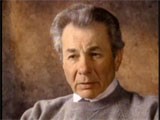
-
Wilhelm Kusserow
ID CardBorn at the beginning of World War I, Wilhelm was patriotically named after Germany's emperor, Wilhelm II. The eldest son, Wilhelm was raised a Lutheran, but after the war his parents became Jehovah's Witnesses and raised their children according to their faith. After 1931, their home in the rustic town of Bad Lippspringe became known as a center of Jehovah's Witness activity. 1933-39: The Kusserows were under close scrutiny by the Nazi police because Witnesses believed that their highest loyalty was to…
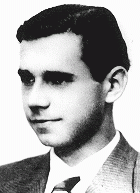
-
Charlene Schiff describes being caught while trying to smuggle food into the Horochow ghetto
Oral HistoryBoth of Charlene's parents were local Jewish community leaders, and the family was active in community life. Charlene's father was a professor of philosophy at the State University of Lvov. World War II began with the German invasion of Poland on September 1, 1939. Charlene's town was in the part of eastern Poland occupied by the Soviet Union under the German-Soviet Pact of August 1939. Under the Soviet occupation, the family remained in its home and Charlene's father continued to teach. The Germans…
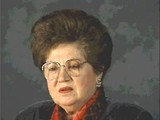
-
Brigitte Friedmann Altman describes a roundup of children in the Kovno ghetto in March 1944
Oral HistoryWorld War II began in September 1939. Brigitte and her family moved to Kovno, hoping to secure visas and passports for travel to North America. In July 1941, Brigitte and her family were forced to move into the Kovno ghetto after the Germans occupied Lithuania. Brigitte's family survived the "Great Action," but her mother died of illness in the ghetto. After a roundup targeting children in March 1944, Brigitte escaped from the ghetto with the help of a former employee of her father. Soviet forces liberated…
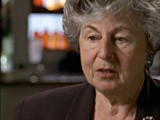
-
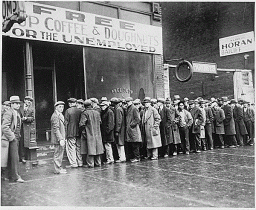
-
Miriam Peleg describes why she joined Żegota
Oral HistoryMiriam Peleg (1913–1996) was a member of the Council for Aid to Jews, codenamed “Żegota.” Żegota was a clandestine rescue organization of Poles and Jews in German-occupied Poland. Supported by the Polish government-in-exile, Żegota coordinated efforts to save Jews from Nazi persecution and murder. It operated from 1942 to 1945. Born Maria Hochberg, Miriam was from a Polish-Jewish family. She grew up in a small town about 70 miles east of Kraków. As early as the summer of 1940, Miriam obtained…
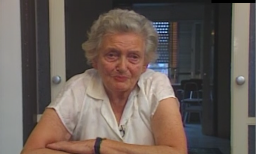
-
Charlene Schiff describes escaping from the Horochow ghetto
Oral HistoryBoth of Charlene's parents were local Jewish community leaders, and the family was active in community life. Charlene's father was a professor of philosophy at the State University of Lvov. World War II began with the German invasion of Poland on September 1, 1939. Charlene's town was in the part of eastern Poland occupied by the Soviet Union under the German-Soviet Pact of August 1939. Under the Soviet occupation, the family remained in its home and Charlene's father continued to teach. The Germans…
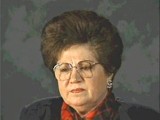
-
Wilek (William) Loew describes the hiding place in which his mother survived an Aktion in Lvov
Oral HistoryWilek was the son of Jewish parents living in the southeastern Polish town of Lvov. His family owned and operated a winery that had been in family hands since 1870. Wilek's father died of a heart attack in 1929. Wilek entered secondary school in 1939. Soon after he began school, World War II began with the German invasion of Poland. Lvov was in the part of eastern Poland annexed by the Soviet Union. Although the Soviets took over Wilek's home and the family business, Wilek was able to continue his…
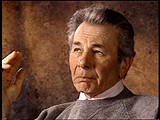
-
Nazi Party Platform
ArticleThe Nazi Party Platform was a 25-point program for the creation of a Nazi state and society. Hitler presented it at the Hofbräuhaus Beerhall in Munich in February 1920.
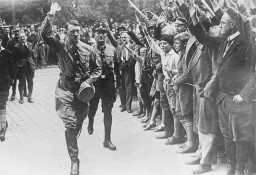
-
The Nazi Camp System: Terminology
ArticleWhat is the difference between a “concentration camp” and a “killing center”? Learn about the history of these terms and what they meant in the context of Nazi oppression and murder.
